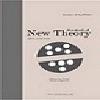Some Issues on Properties of the Extended IOWA Operators in Cubic Group Decision Making
Cubic preference relation (CPR), induced ordered weighted averaging (IOWA), group decision making,
___
- [1] Atanassov K, Intuitionistic fuzzy sets, Fuzzy Sets Syst, (20) (1986) 87-96
- [2] De S K, Biswas R, Roy A R, Some operations on intuitionistic fuzzy sets, Fuzzy Sets Syst, (14) (2000) 477-484
- [3] Jun Y B, SKim C, Yang K O, Cubic sets, Ann. Fuzzy Math. Inf, (4) (2012) 83-98
- [4] Szmidt E, Kacprzy J, A consensus-reaching process under intuitionistic fuzzy preference relation, International Journal of Intelligent Systems, (18) (2003) 837-852
- [5] Xu Z S, Intuitionistic preference relations and their application in group decision making, Information Sciences, (177) (2007) 2363-2379
- [6] Chiclana F, Herrera F, Herrera-Viedma E, Integrating three representation models in fuzzy multipurpose decision making based on fuzzy preference relations, Fuzzy Sets and Systems, (97) (1998) 33-48
- [7] Fodor J, Roubens M, Fuzzy Preference Modelling and Multicriteria Decision Support, Kluwer, Dordrecht, 1994
- [8] Satty T L, The analytic hierarchy process, New York:,McGraw-Hill,(1980)
- [9] Tanino T, Fuzzy preference relations in group decision making, in: J. Kacprzyk, M. Roubens (Eds.), Non-Conventional Preference Relations in Decision Making, Springer-Verlag, Berlin, (1988) 54-71
- [10] Triantaphyllou E, Multi-Criteria Decision Making Methods, A Comparative Study, Kluwer Academic Publishers, Dordrecht, 2000.
- [11] Dubois D, Prade H, Fuzzy Sets and Systems, Theory and Application, Academic Press, New York, 1980
- [12] Herrera F, Herrera-Viedma E, Verdegay J L, A rational consensus model in group decision making using linguistic assessments, Fuzzy Sets and Systems, (88) (1997) 31-49
- [13] Herrera-Viedma E, Herrera F, Chiclana F & M. Luque, Some issues on consistency of fuzzy preference relations, European Journal of Operational Research, (154) (2004) 98-109
- [14] Yager R. R, Induced aggregation operators, Fuzzy Sets and Systems, (137) (2003) 59-69
- Yayın Aralığı: 4
- Başlangıç: 2014
- Yayıncı: Naim Çağman
Muhammad Shakeel, Saleem Abdullah, Aliya Fahmi
Arafa NASEF, Abd-el Ftah. Abd Alla. AZZAM, Nada SEYAM
Muhammad SHAKEEL, Saleem ABDULLAH, Muhammad SHAHZAD
Prabhavati S. Prabhavati S. Mandalageri, Revanasiddappa S. Wali
Raja MARUTHAMUTHU, Seenivasagan NARAYANASAMY, Ravi OTCHANATHEVAR
İlangovan RAJASEKARAN, Ochanan NETHAJİ, Thangavel KAVİTHA
Virendra Kumar GUPTA, Sandeep Kumar TİWARİ, Shivram SHARMA, Lakhan NAGAR
